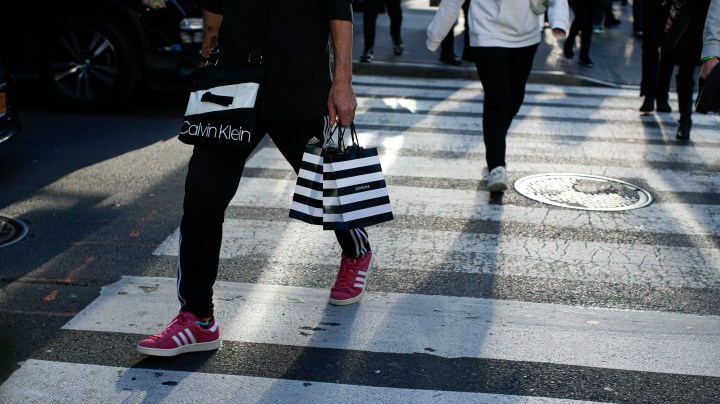
Consumers are starting to worry about COVID-19’s economic impact, survey finds
Consumers are starting to worry about COVID-19’s economic impact, survey finds

U.S. and foreign financial markets have fallen hard this week, as COVID-19 continues to spread to more countries in Asia, Europe and the Middle East, and investor fears mount that the growing epidemic will have a significant negative impact on the global economy.
A new consumer survey released today by Morning Consult finds that U.S. consumers are starting to take notice as well.
Before today’s report, there had been little evidence the epidemic was impacting U.S. consumer sentiment and willingness to spend. On Tuesday, the Conference Board reported that consumer confidence rose in February to a six-month high, driven by solid job growth, low mortgage rates and falling gasoline prices. Consumers’ plans to buy autos, homes and major appliances within the next six months all improved.
The Morning Consult survey, fielded Feb. 17-23, just before U.S. markets started plummeting, finds that consumer confidence has fallen back to approximately the level at the start of 2020. The decline is about half as big as occurred when U.S.-Iran tensions flared up in mid-January, and confidence is still higher than at the height of U.S.-China trade tensions last summer.
“For many consumers, the issue of coronavirus is still outside of their daily lives,” said Morning Consult economist John Leer. “Very few consumers believe that coronavirus will affect their local economy. But as you ask about broader economic regions — like the United States, China, the globe — the number increases.”
People involved in the agriculture sector express the most worry about COVID-19’s impact, said Leer — concerned that the extensive disruption in China will prevent China from buying as much U.S. crop exports as was promised in the Phase One trade deal. Workers in finance and transportation also expressed heightened concern about coronavirus.
“We see that consumer sentiment is highly correlated with the S&P 500 and investor concerns over time,” Leer said. “It wouldn’t be surprising if in the near term, consumers’ outlook of the macroeconomy started to take a hit prior to their views of their own personal financial conditions.”
Senior U.S. health officials told a Senate panel on Tuesday that it’s likely COVID-19 will spread within the U.S. eventually. “We cannot hermetically seal off the United States to a virus,” said Alex M. Azar II, secretary of health and human services. “And we need to be realistic about that.”
Dr. Nancy Messonnier, director of the National Center for Immunization and Respiratory Diseases, called for American consumers, businesses, and health care providers to begin to prepare for “social distancing measures” to contain the epidemic, such as closing schools, canceling meetings and conferences, and arranging for employees to work from home.
President Donald Trump, however, downplayed the risk to the U.S., saying on a trip to India that the coronavirus epidemic is “very well under control in our country,” and that infected patients who have returned to the U.S. from abroad “are getting better, they’re all getting better.””
And Larry Kudlow, director of the National Economic Council, said on CNBC that coronavirus had been “contained.”
“I don’t think it’s going to be an economic tragedy at all,” Kudlow said.
There’s a lot happening in the world. Through it all, Marketplace is here for you.
You rely on Marketplace to break down the world’s events and tell you how it affects you in a fact-based, approachable way. We rely on your financial support to keep making that possible.
Your donation today powers the independent journalism that you rely on. For just $5/month, you can help sustain Marketplace so we can keep reporting on the things that matter to you.












